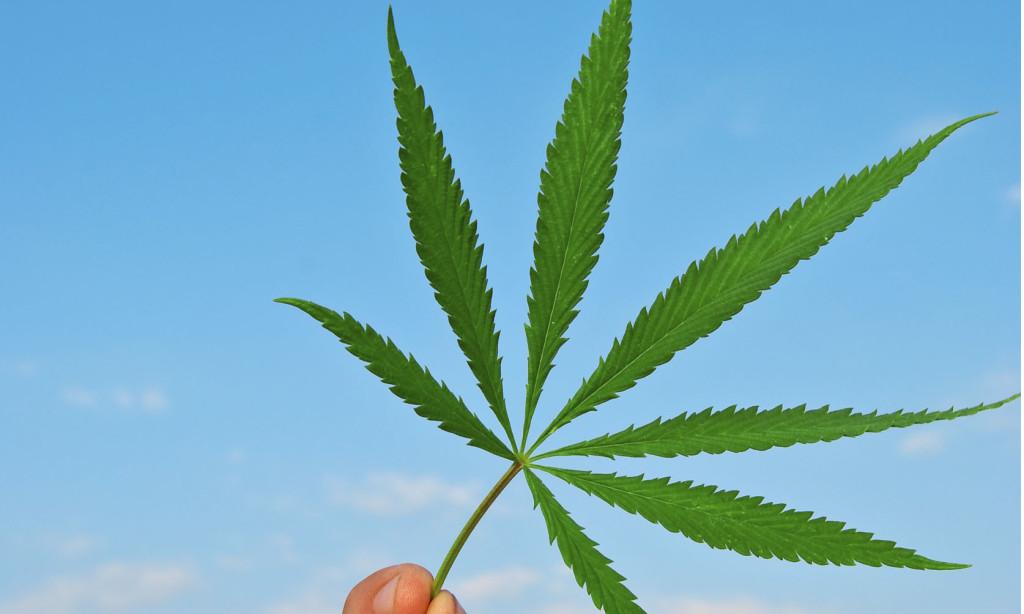Students are getting high—and the number of drug law violations is getting higher.
The University recently reported that drug violations here have increased 63 percent over a three-year span. According to Thomas Lawrence, vice president for Public Safety, there seems to be only one drug of choice: marijuana.
“It is not that we don’t think other drugs are being used, but what we come across for the most part is marijuana,” Lawrence told The Torch. “The distinct odor, especially in the dorms … is very noticeable wherever you are.”
According to the annual Security and Fire Safety Report, which was sent via email to the University community late last month, there were 255 drug law violations on campus last year that were referred for disciplinary action. That figure is up from 212 in 2011 and 156 in 2010.
Of the 255 drug law violations reported on campus last year, 201 took place in the residence halls, representing an increase from 186 in 2011 and from 147 in 2010.
There were four drug-related arrests on campus last year, down from 10 in 2011.
Meanwhile, liquor law violations on campus dropped significantly, from 450 in 2011 to 320 in 2012. No liquor violation resulted in an arrest.
All universities are required by federal law to publish an annual report detailing crime statistics on campus and in some of the surrounding areas, as per the Jeanne Clery Disclosure of Campus Security Policy and Campus Crime Statistics Act, better known as the Clery Act.
“The drug of choice is marijuana on campus,” Lawrence said. “Although it is up a little bit, if you look, it is probably nationwide.”
Lawrence said he has spoken extensively with University administrators and Student Wellness about the increase in marijuana usage.
Referencing the National Institute on Drug Abuse, Lawrence said many students nationwide admit they have used drugs well before starting their freshmen year – some as young as the eighth grade.
According to the most recent NIDA study on youth drug trends, 15 percent of eighth graders last year said they had already experimented with marijuana in their lifetime. By 12th grade that number rises to 45 percent, which represents a three-percent increase over a four-year period.
Public Safety officers have responded to the upward trend here on campus by issuing more violations. Outside the residence halls, Lawrence said traditional spots throughout campus where such violations are issued include St. Vincent’s patio and the softball field.
“The smell kind of just leads you right to it,” he said.
Lawrence said parents sometimes smell marijuana when they come into the residence halls, too. Roommates and suitemates of smokers have also complained about the smell in their rooms and suites, he said.
“I think the bystander piece is very good,” Lawrence said. “We get a lot of information from students.”
One of Lawrence’s mottos when it comes to any campus or law violation: If you see something, say something. That goes for sex offenses, too.
“One is too many,” Lawrence said.
According to the University safety report, three forcible sex offenses were reported in the residence halls in 2012. Forcible sex offenses can include rape and forcible touching. Lawrence said all three victims knew their perpetrators.
The number of forcible sex offenses is down from four in 2011.
Regarding the 29-percent decrease in liquor violations in only one year, Lawrence credited increased Public Safety patrols of the residence halls and diligent resident assistants.
“They really stepped it up last year,” he said. “And the class just realizing— you can’t do this on campus.”
The University works closely with NYPD and the 107th Precinct to ensure the campus and students are safe, Lawrence said.
“We want a safe and secure campus,” he said. “We want you to have a great experience, but a safe experience.”
He added that alcohol and drugs have the potential to threaten the safety of students and the community.
“It is not going to be tolerated on campus,” Lawrence said.














